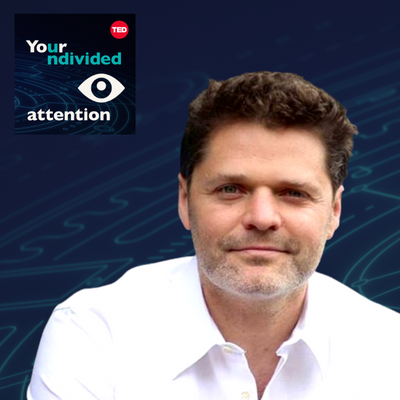Episode 62 | Feb 2, 2023
The Race to Cooperation with David Sloan Wilson
It’s easy to tell ourselves we’re living in the world we want – one where Darwinian evolution drives competing technology platforms and capitalism pushes nations to maximize GDP regardless of externalities like carbon emissions. It can feel like evolution and competition are all there is.
If that’s a complete description of what’s driving the world and our collective destiny, that can feel pretty hopeless. But what if that’s not the whole story of evolution?
This is where evolutionary theorist, author, and professor David Sloan Wilson comes in. He has documented where an enlightened game, one of cooperation, rather than competition, is possible. His work shows that humans can and have chosen values like cooperation, altruism and group success – versus individual competition and selfishness – at key moments in our evolution, proving that evolution isn’t just genetic. It’s cultural, and it’s a choice.
In a world where our trajectory isn’t tracking in the direction we want, it's time to slow down and ask: is a different kind of conscious evolution possible?
On Your Undivided Attention, we’re going to update the Darwinian principles of evolution using a critical scientific lens that can help upgrade our ability to cooperate – ranging from the small community-level, all the way to entire technology companies that can cooperate in ways that allow everyone to succeed.
The world doesn’t have to be this way. And that gives us reason to hope.
Major Takeaways
Humans are neither noble nor dark by default. At Center for Humane Technology, we believe that humane technology will help us achieve the existential task of cooperation so we can grow and evolve. David Sloan Wilson’s work is powerful because it helps us understand what gives rise to our noble side.
Evolutionary theory isn’t only about biology. The idea applies broadly to culture and technology. Everything taking place around us, good and bad, can be understood through this evolutionary lens.
Humans are a fundamentally cooperative species, but we need to feel safe in our group to be prosocial. Nobel Prize winner Elinor Ostrom theorized that some groups overcome the ‘tragedy of the commons’ and successfully manage common resources by applying these core design principles:
~Commons need to have clearly defined boundaries.
~Rules should fit local circumstances.
~Participatory decision-making is vital.
~Commons must be monitored.
~Sanctions for those who abuse the commons should be graduated.
~Conflict resolution should be easily accessible.
~Commons need the right to organize.
~Commons work best when nested within larger networks.
Altruistic groups beat selfish groups. Humans are the only species capable of consciously choosing the direction of our evolution. Whether it’s a city, a company, or a family that practices Ostrom’s principles, the unit tends to perform quite well.


